- 1 half gallon whole milk (preferably organic)
- 1 cup heavy cream
- 1/2 teaspoon salt
- 2 tablespoons fresh lemon juice
- Special equipment: large strainer, fine-mesh cheesecloth
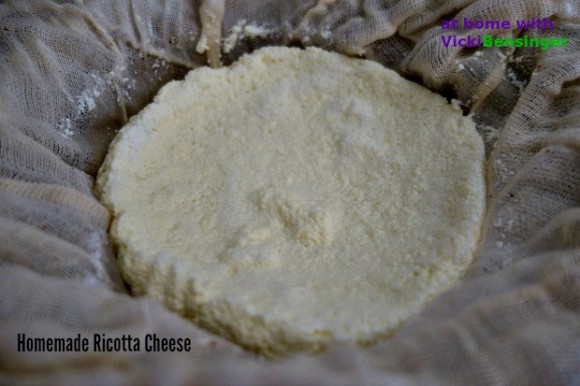
My daughter and I traveled to Italy almost 8 years ago starting from the Northern end and finishing up at Southern tip of the Amalfi Coast. Our trip was memorable and one I’ll never forget.

While we saw every site imaginable by foot in each city and traveled by train to visit the next, the food was incredible, and as I recall, pure and simple.
I would have expected to gain 10 pounds but instead lost five. What I remember most about the food were the most flavorful tomatoes I’d ever tasted, the freshest fish and the creamiest ricotta cheese.
I’ve never been able to find tomatoes like those since returning to the states, or tasted fish like that served on the Mediterranean. However, I was able to recreate a homemade version of ricotta cheese that while it may not be as superior to that served in Italy, it is far better than what you can purchase in containers. Believe it or not, it’s so easy to make that it seems pointless to purchase store-bought containers unless time is of the essence, and even then it takes virtually no time at all.
Ricotta has been a traditional cheese of Italy for many centuries. It was originally a means to strip proteins from the whey following the primary cheese making process… Proteins that would have otherwise been lost in the whey. Traditional Ricotta is made by reheating whey (hence, the name “Ricotta” which means twice-cooked) and originated as a byproduct of the cheese-making process. In this process a live culture or an acid is added to the milk to lower the pH, the mixture is then heated. This heat treatment, combined with the effect of the acid, causes the precipitation of the curd. The collected curds are then allowed to drain, resulting in Ricotta cheese.
*Ricotta cheese can be made in various ways:
The version I’m sharing is made from organic whole milk. If you’ve never attempted making homemade Ricotta cheese please try it. The flavor is truly amazing! It’s not just for stuffing into noodles but can be used for desserts or sprinkled with fresh berries and honey.
In my next post I’ll share a recipe using this homemade Ricotta cheese that I’ve been a fan of for years, so be sure to stop by soon.
Here’s my recipe……………………
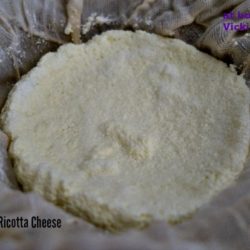
Once you try this simple homemade version that is so creamy and delicious you'll never want to purchase the store-bought containers again.
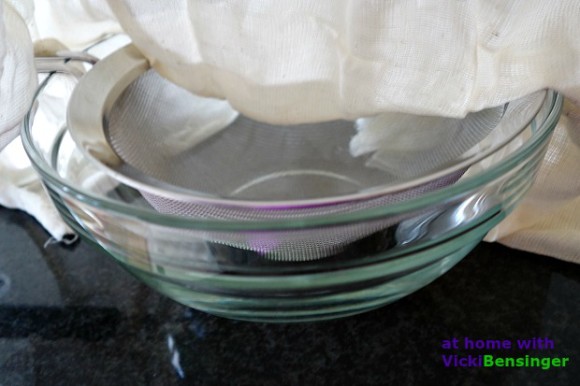
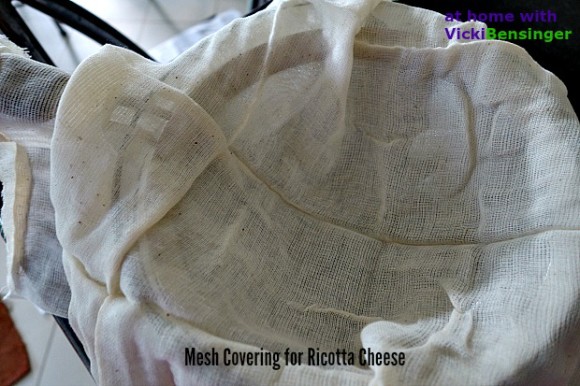
2. Slowly bring milk, cream, and salt to a rolling boil in a 6-quart heavy pot over moderate heat, stirring occasionally to prevent scorching. Add lemon juice, then reduce heat to low
and simmer, stirring constantly, until the mixture curdles, about 2 minutes.
3. Pour the mixture into the mesh-lined strainer,
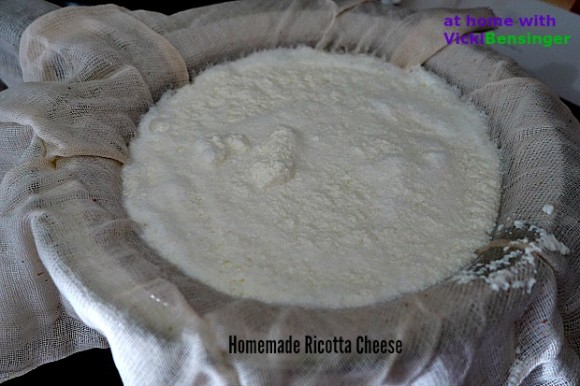
and let it *drain 1 hour.
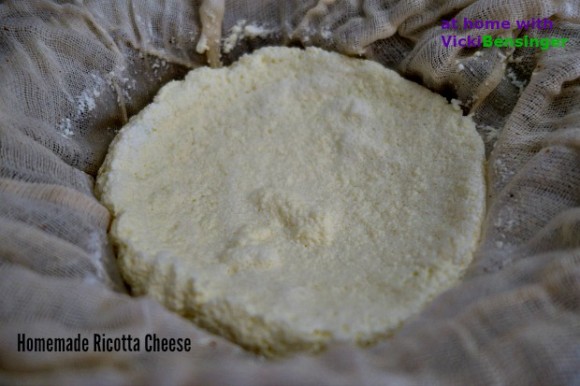
4. After discarding the liquid, eat warm or place Ricotta into a covered container, and chill; it will keep in the refrigerator 2 days.
* See note in the body of this article.
Adapted from: Richard Ferretti from Gourmet Magazine